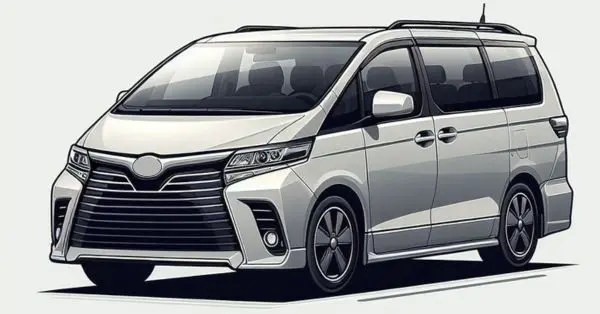When considering trading your car, you may only focus on its make, model, and year. But did you know that eight other surprising factors can affect how much you get for your vehicle? These factors include the color of your car, the type of transmission it has, whether it’s been in an accident, and even the time of year you’re trading it in. This article will reveal what they are and how they influence your trade-in value.
What Is A Car Trade-in Value?
The car trade-in value is the price a dealership, which operates to sell the car for a profit, is willing to offer you for your old car when you sell it to them while buying another new or used vehicle. This value is influenced by factors such as the vehicle’s age, mileage, condition, demand for the model, and location. It’s important to note that the trade-in value is usually lower than the retail value. Understanding the dealership’s perspective can help you negotiate better deals. Please click below if you want us to help you with the list of platforms for vehicle trade-in in Germany.
Contact Us For Your Car Trade-ins

Research pricing guides for your car’s value. Clean and repair minor issues to boost curb appeal. Shop around by getting trade-in quotes from multiple dealers. Negotiate the trade-in price separately from a new vehicle’s cost. Selling privately often yields higher prices but requires more effort, while trading in is more convenient.
1. Make, Model, And Year of A Car
The trade-in value of your car depends on various factors, not just its make, model, and year. Generally, newer and more popular cars fetch higher prices than older or less common ones. However, other aspects of your vehicle can also affect how much you can get for it.
2. The Condition of Your Car
The condition of your car is a significant factor that can impact its trade-in value. Cars in excellent condition will typically have a higher value than cars in poor condition. Regular maintenance and addressing any issues as soon as they arise are crucial to ensure your auto is in the best possible condition.
3. The Mileage on Your Car
The mileage on your car is another factor that can impact its trade-in value. Vehicles with lower mileage commonly have a higher trade-in worth than those with higher mileage. Note that the car’s condition is also critical. A car with low mileage in poor condition will have a lower value than a car with slightly higher mileage in excellent condition.
4. The Color of Your Car
It may surprise you, but the color of your car can affect its trade-in worth. Cars painted in popular colors, like white, black, and silver, usually receive higher trade-in values than those painted in less popular colors, such as brown or green. This is because cars painted in popular colors are more in demand.
5. The Features of Your Car
Did you know that the features of your car can affect its trade-in value? Cars with desirable features like leather seats, a sunroof, or a premium sound system usually have a higher trade-in value than those without. It’s essential to remember that the value of these features may vary depending on the make and model of your vehicle.
6. The Time of Year You Want to Trade In Your Car
The time of year you want to trade in your car can also impact its trade-in value. Generally, the best time to trade in your vehicle is in the spring or summer when car demand is high. However, if you live in a region with harsh winters, you may get a higher value for your car during the fall or winter when 4-wheel-drive and all-wheel-drive vehicles are in higher demand.
7. The Location of Your Car
The location of your car can also impact its value. Cars in regions with higher demand for specific makes and models may have a higher worth than cars in areas where those makes and models are less popular. Additionally, motor vehicles in regions with harsh weather conditions or high salt levels on the roads may have a lower trade-in value due to increased wear and tear.
8. The Economy
The value of your car when you trade it in can be affected by the current state of the economy. In times of economic downturn, people tend to keep their vehicles for more extended periods, which leads to decreased demand for newer cars and decreases the value of your vehicle.

Wait to discuss your trade-in after negotiating the new car’s price. Verify the math and value applied to your trade. Bring an impartial friend for negotiations. Get multiple trade-in quotes beyond the dealership. Clean and fix minor issues on your trade-in car. Gather all documents and extras.
Wrapping Up
As you can see, several factors can impact the value of your car trade-in beyond just the make, model, and year. By taking care of your vehicle, keeping up with routine maintenance, and paying attention to the factors discussed in this article, you can help ensure you get the highest possible value for your car.
Conclusion
If you want to upgrade to a newer car and earn extra cash, trading in your old car could be a good option. However, several factors can affect the trade-in value of your vehicle, apart from its make, model, and year.
To get the best possible value, it’s essential to take good care of your car by following routine maintenance, addressing any issues promptly, and paying attention to the tips discussed in this article.
FAQs: Factors That Can Influence A Vehicle Trade-In Value
Yes, vehicles in popular colors tend to have higher trade-in values than cars in less popular colors.
Generally, the best time to trade in your vehicle is in the spring or summer when car demand is high.
You can increase the trade-in value of your vehicle by keeping up with routine maintenance, addressing any issues as soon as they arise, and ensuring your car is in the best possible condition.
Yes, during a recession, for example, people tend to hold onto their vehicles for longer, resulting in lower demand for newer cars and a lower trade-in value for your vehicle.
Yes, it is a good idea to research before going to the dealership to ensure you are getting a fair offer.
